Looking for a way to prepare spaghetti that’s quick and easy? You’ve come to the right place, because making pasta in the electric pressure cooker means you don’t even have to stir it, or set a timer!
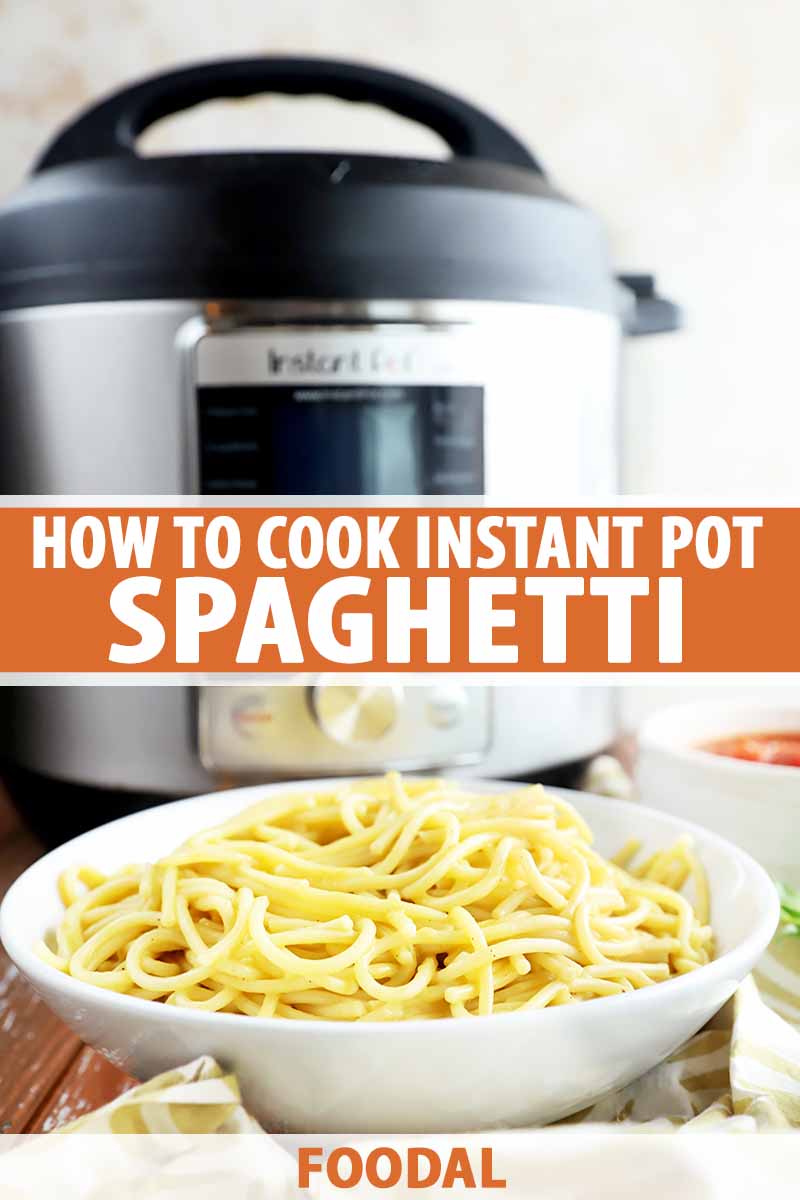
When I was eight months pregnant, pasta became a way of life for me. I was craving all of the carbs all the time.
There was no way around it. I became resigned to the fact that the baby wanted me to eat all the pasta in the house, sometimes daily.
Even simple household tasks started to become a challenge around this time. I don’t know if I was just plagued with a more difficult pregnancy than others or if every woman goes through this, but the third trimester really was a pain! As a result, I was on a mission to find the best ways to cook pasta with minimal effort.
I’m so glad I discovered cooking spaghetti in the electric pressure cooker because it’s so simple. I don’t have to wait for water to boil first, which takes longer than the countertop appliance does to come to pressure, and I don’t have to tend to it over the stove.
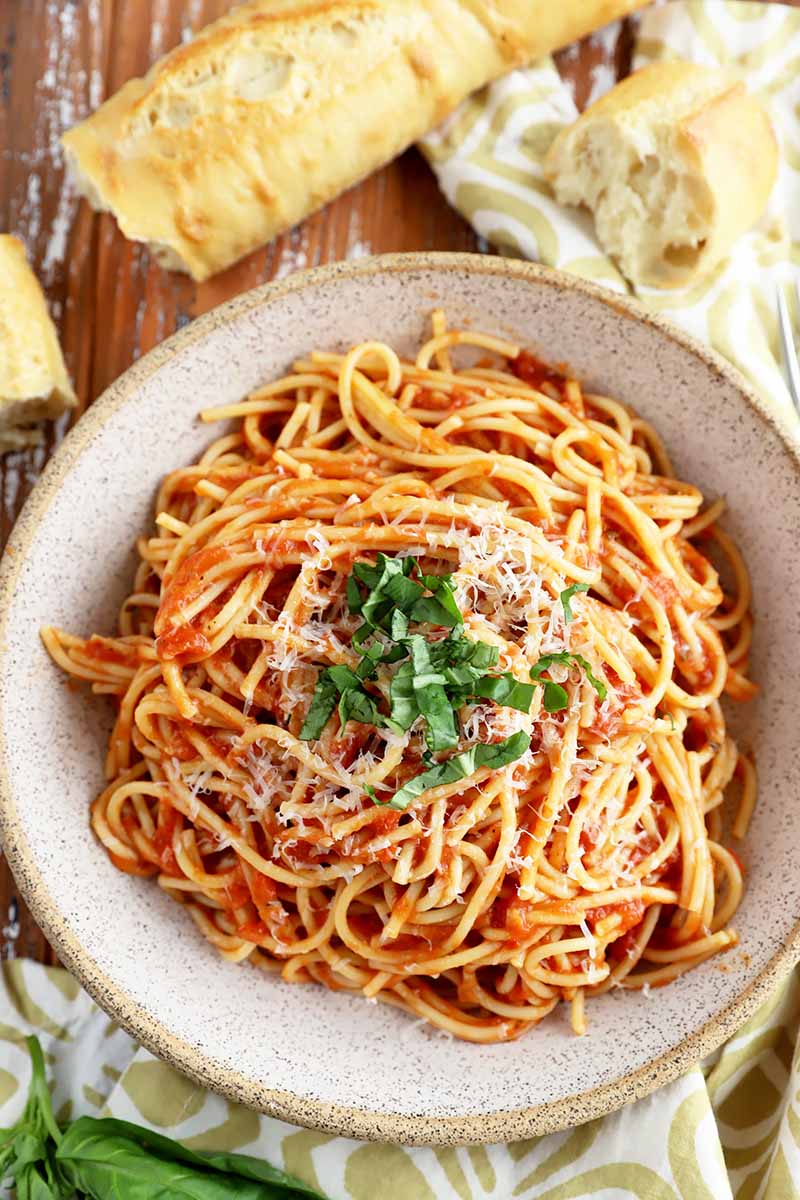
Using this handy kitchen appliance makes it so easy to whip up a big batch of my favorite carbs quickly, in about 10 minutes or less from start to finish.
Before we get started, here’s a quick note on cooking spaghetti in the electric pressure cooker that is important to remember:
When you are using this method, you will have to break the noodles in half before adding them to the insert.
Why do you need to take this extra step?
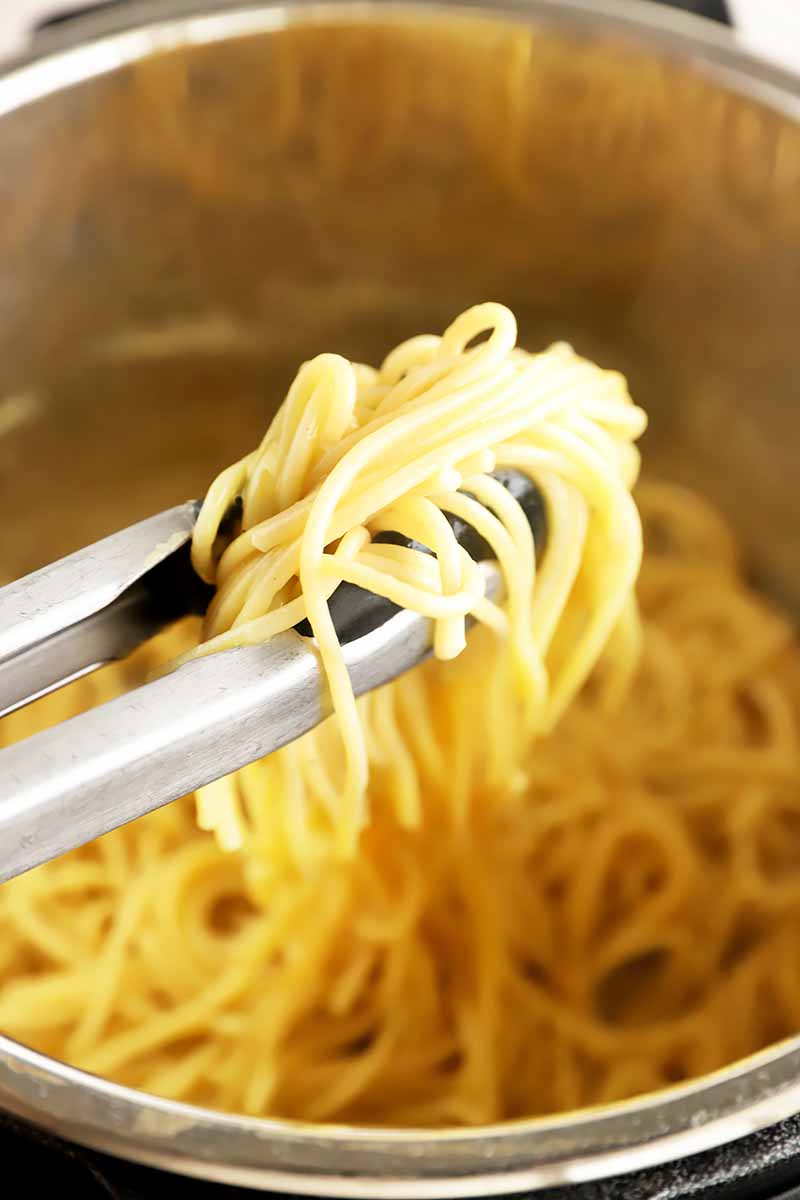
Well, the noodles will not fit in the insert at their full length. The key is to make sure the noodles are lying evenly on the bottom so the liquid can cover them. Otherwise, you’ll end up with noodles that are cooked perfectly on one half, and only partially cooked on the other end.
If you don’t like the idea of breaking noodles in half, consider trying a smaller pasta shape that can be cooked in the electric pressure cooker just as easily instead. We’ll cover several of these in separate how-to guides (coming soon!)
Serving Suggestions
Now that we’ve been over that, let’s consider some serving ideas, shall we?
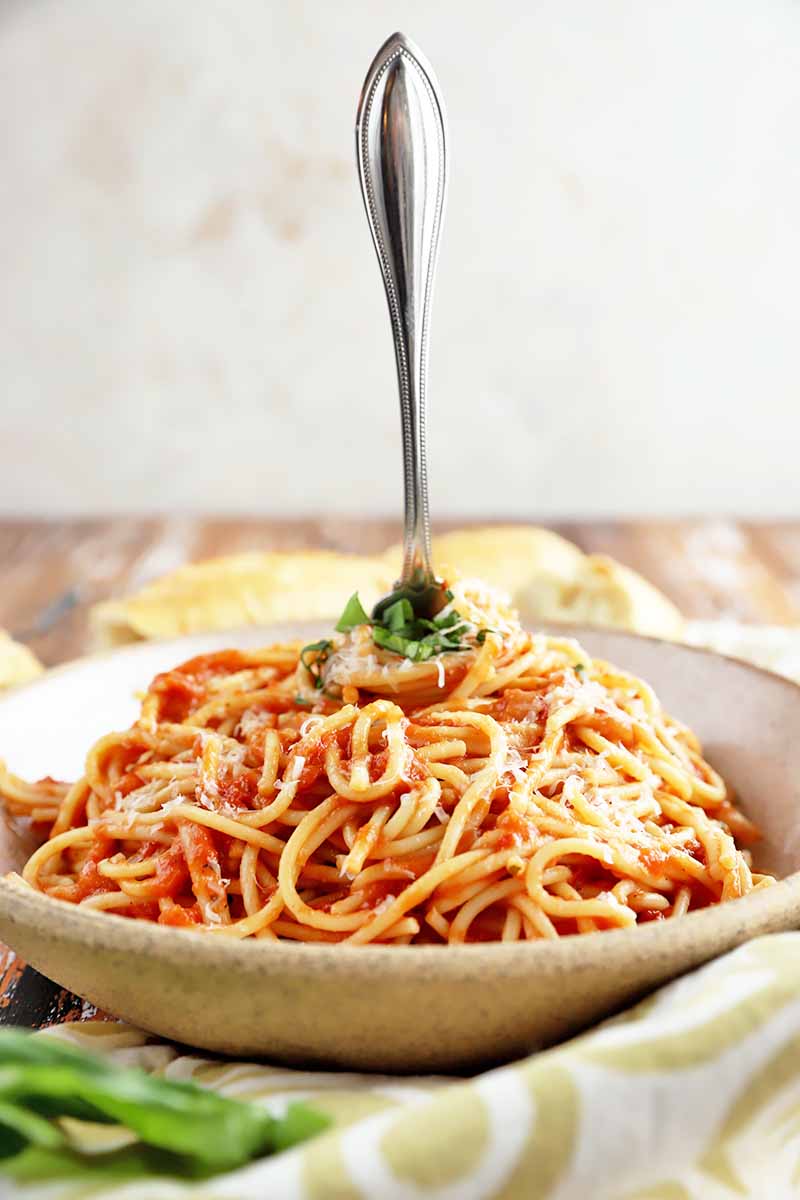
Anything that you can make via the traditional stovetop method, or that you can make with cooked spaghetti, you can prep using this method. Here are a few of my favorite sauce and protein combos from Foodal to enjoy:
- Classic Spaghetti and Meatballs
- Spaghetti alla Carbonara
- Spaghetti Bolognese
- Lemony Pasta with Grilled Chicken
Sometimes you might also end up with leftovers. Not sure what to do with them? Don’t worry, because I have a few ideas for you to use up the rest of those plain cooked noodles:
- They will make a tasty addition to stir fry if you want to bulk it up a bit, and skip the extra step of making rice.
- Add them to pasta bakes or make spaghetti pie.
- Combine them with chicken broth and cooked veggies to make a quick chicken noodle soup.
You will really be amazed by how quickly the noodles cook, and how they come out the same way every time, with super consistent results.
There’s no need to worry about forgetting to set a timer or worrying about the water not boiling enough. It’s all taken care of inside the pressure cooker!
How to Cook Spaghetti in the Electric Pressure Cooker
Even though you do need to break the noodles in half before cooking, that won’t hinder the simple enjoyment of eating the perfectly cooked pasta when it’s done. Served with your favorite sauce, it’s a family favorite that just got a whole lot easier to make.
Step 1 – Measure Ingredients
First, make sure you have your ingredients ready to go. You will need:
- 8 ounces uncooked spaghetti
- 2 cups water, or low-sodium chicken or vegetable broth
- 1/2 teaspoon salt
Measure out the ingredients. You can opt to use chicken broth or another type of stock if you want to impart more flavor into your noodles.
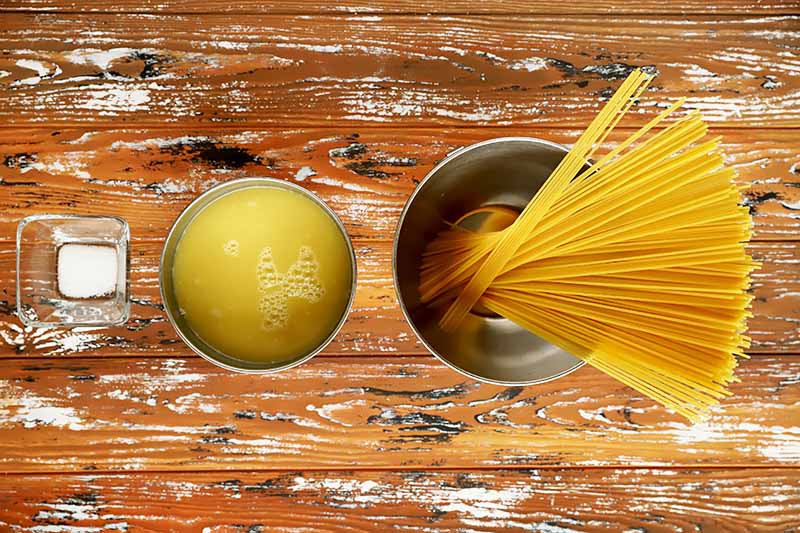
Break the noodles in half, so they will fit in the insert.
Step 2 – Cook
Add the uncooked noodles to the electric pressure cooker insert, making sure the noodles are not sticking up all over the place. You want them to be submerged fully before you put the lid on.
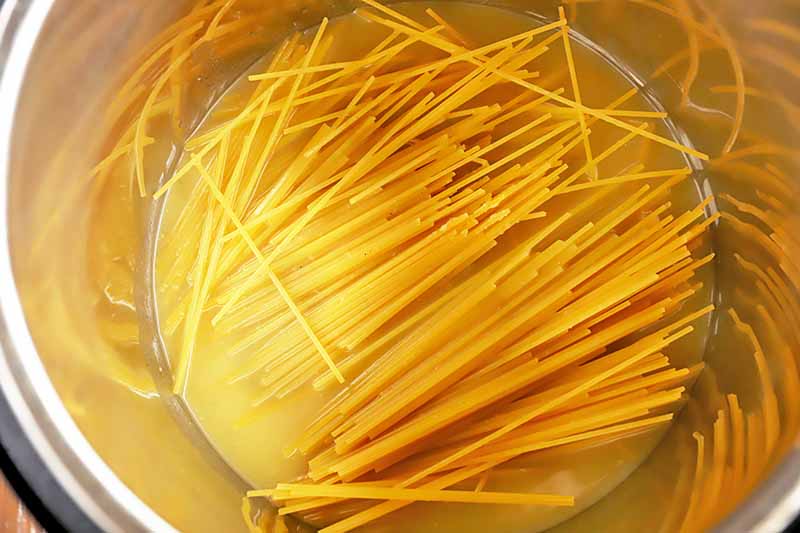
Top with water (or broth) and salt. Do not stir before cooking, to help prevent sticking.
Take a look at the cooking instructions on the box for preparing spaghetti on the stovetop. Divide the total time in half, then subtract two minutes, and round up your total to get a whole number if needed. Cook on High pressure for this amount of time.
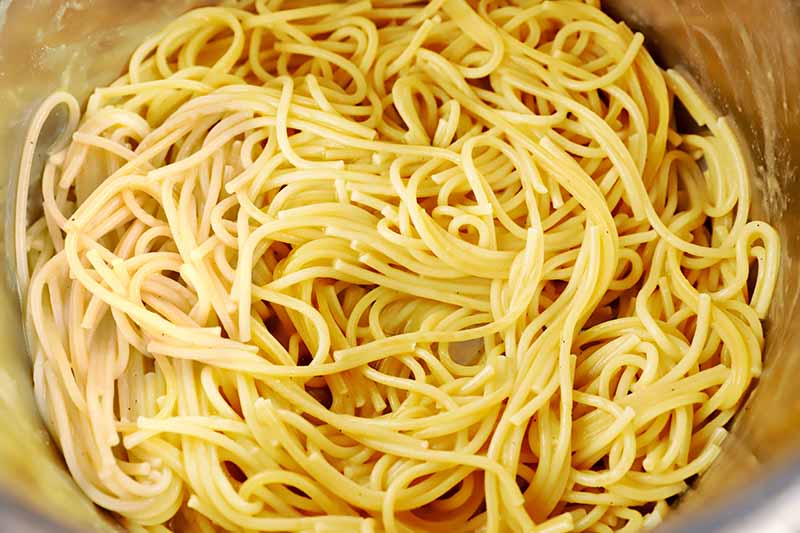
For the spaghetti that I used, here’s how I did the math. the packaging recommended a total cook time of 9 minutes for al dente pasta. Divided in half this is 4.5 minutes, then I subtracted 2 to get 2.5 minutes, and rounded up to end up with 3 minutes total for my cook time.
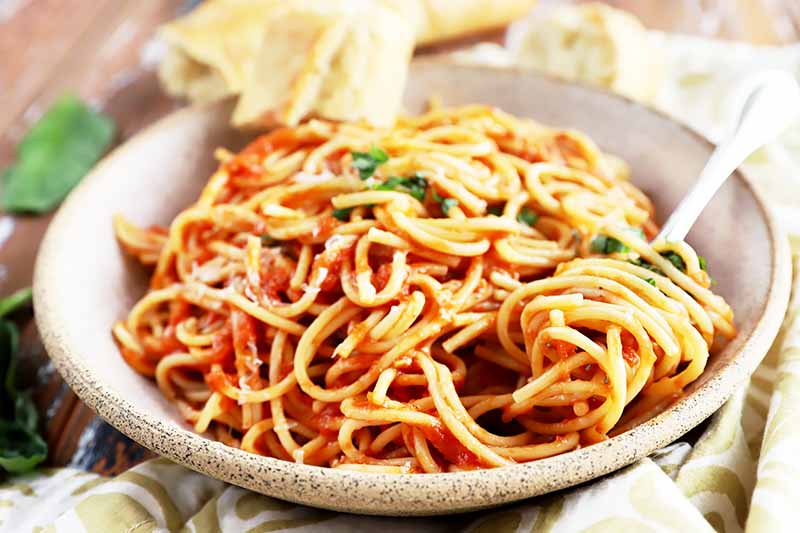
After pressure cooking, let the steam release naturally for 5 minutes, then manually release any remaining pressure. Open the lid, and stir the pasta well. It should absorb any remaining liquid when you stir it together. Serve as desired.
What If I Like More Tender Pasta?
If you enjoy pasta that is more tender rather than enjoying it al dente, you will still use the same equation I described above to calculate your cook time.
All you have to do is use the time indicated on the packaging for cooking more tender pasta, or the higher end of the total cook time range if this is provided. Usually, this means adding a minute or two to the total cooking time indicated, if the packaging doesn’t suggest a range.
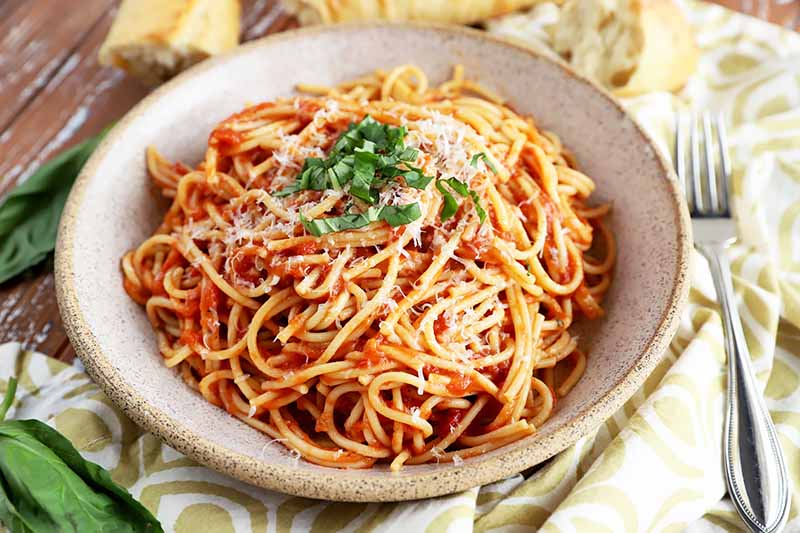
Take the total time, and divide it in half. Subtract two minutes, round up if necessary, and you have the total cook time for the electric pressure cooker.
Curious about how to cook other types of pasta in the electric pressure cooker? Check out these helpful how-to guides next:
- How to Cook Orzo in the Electric Pressure Cooker
- How to Cook Whole Wheat Pasta in the Electric Pressure Cooker
What’s your favorite sauce to serve with spaghetti? Tell us in the comments below!
Photos by Meghan Yager, © Ask the Experts, LLC. ALL RIGHTS RESERVED. See our TOS for more details. With additional writing and editing by Allison Sidhu.
About Meghan Yager
Meghan Yager is a food addict turned food and travel writer with a love for creating uncomplicated, gourmet recipes and devouring anything the world serves up. As the author of the food and travel blog Cake 'n Knife, Meghan focuses on unique foodie experiences from around the world to right at home in your own kitchen.

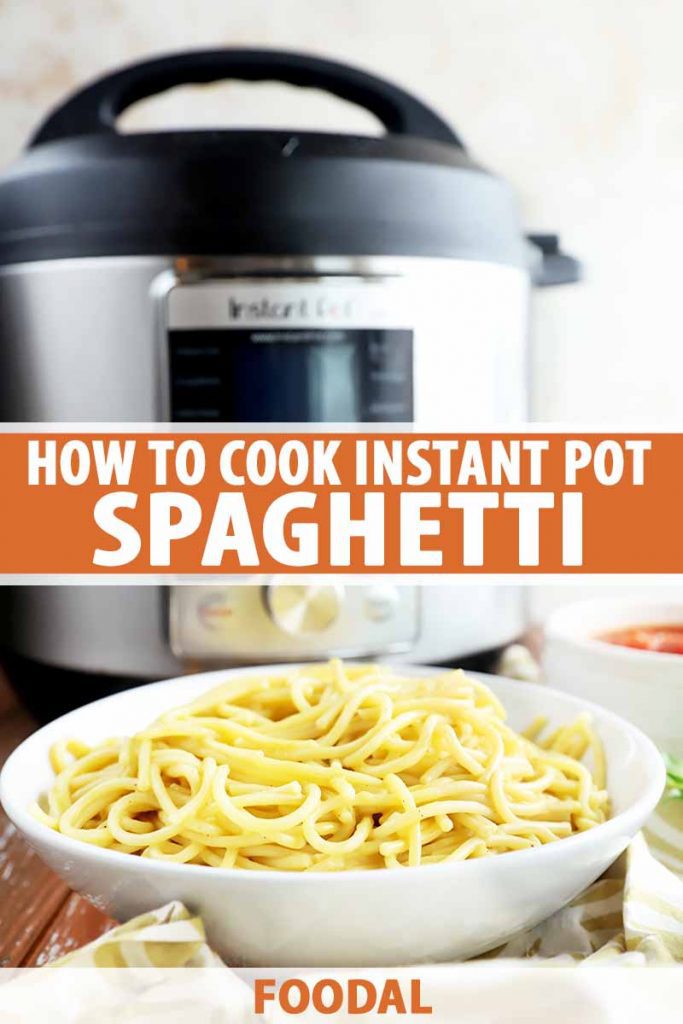


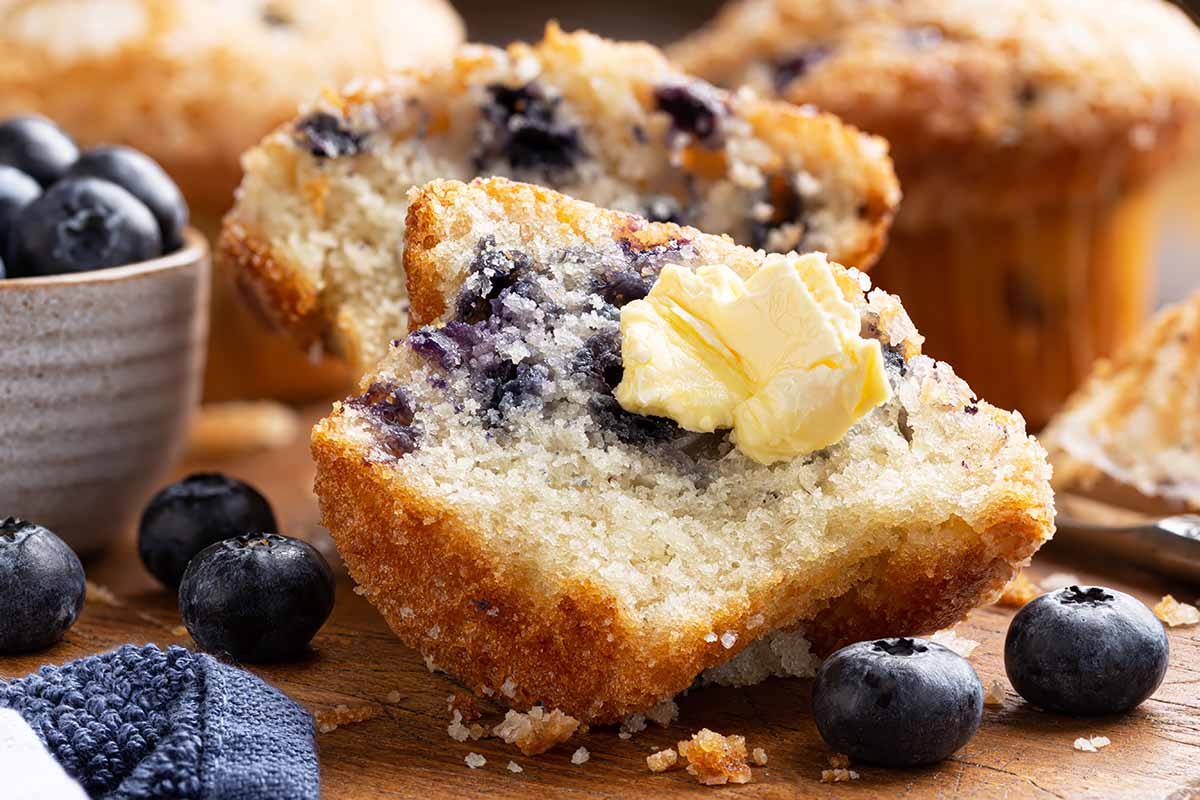
Do I set my pressure cooker on low pressure or high pressure? I’ve looked at multiple sites and nobody seem to tell me what pressure. Thank you.
Blessings
Check step 2 above- cook on high pressure.
You’re welcome! Hope you enjoy the pasta.
You recommend 1 min cooking time (+5 min natural steam release) for egg noodles but for spaghetti 1/2 time + 2 min (+5min again). Why the difference? I use really thick wide egg noodles. Thanks!
What’s the recommended cook time on the package, Pete? If the noodles that you want to cook are significantly thicker you may need to cook them for longer, so the formula recommended here that you referenced may be a better fit. Take a look at our guides to cooking egg noodles in the pressure cooker and making pressure cooker pasta for additional tips.
Does the pressure cooking in a Ninja 15-1 Max work the same as an ordinary pressure cooker? I have just bought the Ninja and used to cook my spaghetti for 12 mins on my hob after the water had boiled.
The Ninja 15-1 Max offers multiple functions including pressure cooking, which works the same way as it does in other electric pressure cookers like the Instant Pot. Be sure to familiarize yourself with the instructions for using this function in your user manual.